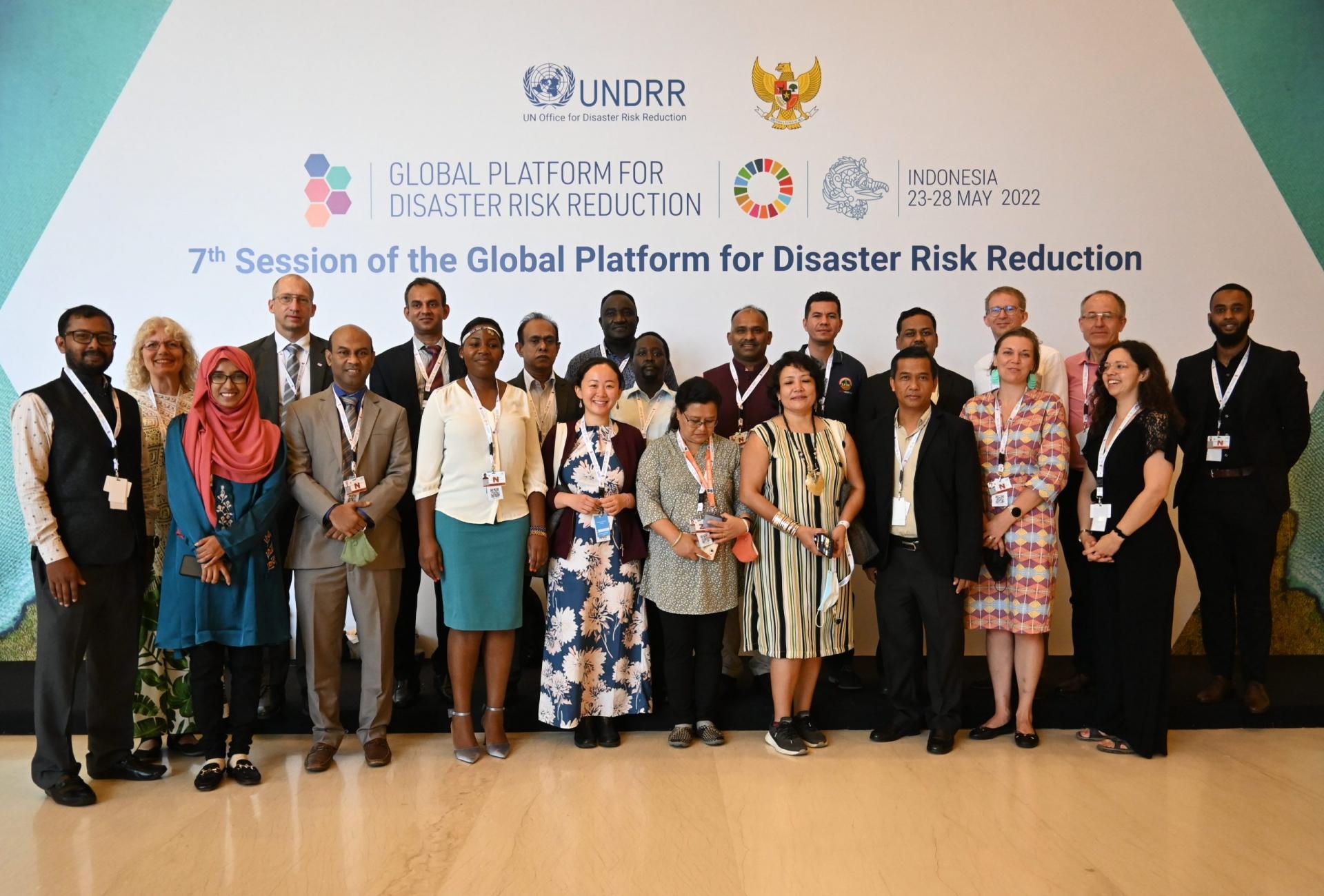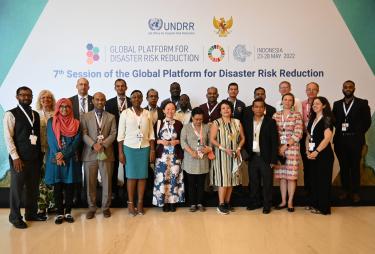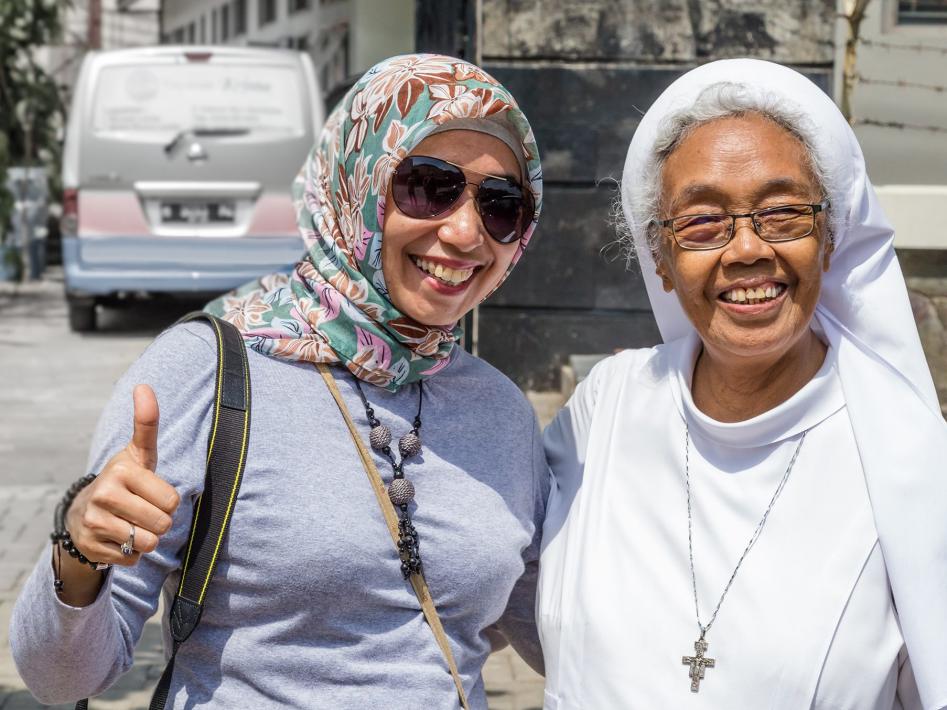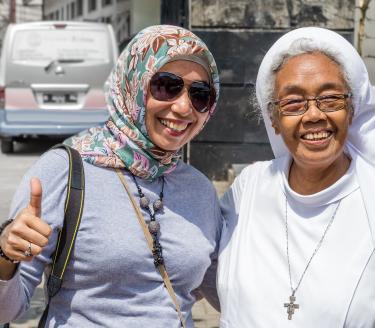SMC Highlights the Role of Faith-Based Actors at Global UN Conference


SMC is actively working to reduce disaster risks and build resilience in local communities where our member organisations support development cooperation and humanitarian efforts. This work is becoming increasingly vital in the face of ongoing climate change and environmental degradation.
— Many governments are scaling back their support for international development cooperation, which also affects funding for disaster risk reduction and humanitarian efforts. As a result, local organisations — many of them faith-based — have an increasingly important role to play, says Petter Jakobsson, advisor at SMC.
For this reason, SMC is taking deliberate steps to raise this issue during the 8th Global Platform for Disaster Risk Reduction, taking place in Geneva on 2—6 June, organised by the United Nations Office for Disaster Risk Reduction (UNDRR). The conference theme, “Every Day Counts: Accelerating Action for Resilience,” highlights the urgency of collective action to implement the global Sendai Framework, adopted in 2015.
SMC is participating together with LM and representatives from partner organisations in Burkina Faso, Kenya, Nepal, and Uganda — all of which are leading efforts to establish national Communities of Practice to strengthen resilience at local and national levels. SMC is also coordinating with other Swedish faith-based actors within the Swedish Resilience Network, many of whom are attending the conference in Geneva.
— We are seeing strong global engagement from churches and faith-based organisations on issues like climate and biodiversity, says Lennart Nolvall, programme officer at SMC and continues
— But when it comes to disaster risk reduction specifically, faith actors are crucial at the grassroots level — yet there is weaker international advocacy engagement from churches and faith-based organisations. This lack of visibility means UNDRR, national governments, and institutional donors often fail to recognise the role of local religious actors and the importance of faith in building resilience. That lack of understanding has a devastating effect on outcomes — and SMC, together with our network, wants to change that.
In the lead-up to the conference, SMC and leading faith-based organisations globally have developed a joint statement, which will be shared with policymakers and organisations during the week. The statement emphasises that faith-based organisations and local religious actors are deeply rooted in communities that are vulnerable to disasters. Their local presence enables them to understand context-specific challenges and mobilise community-driven solutions that foster resilience and sustainable development.
In a world increasingly affected by conflict — where we’re seeing a shift from development and humanitarian aid towards military spending — it is more important than ever to prioritise cooperation on disaster risk reduction and redefine what true security means. This is the core message of the joint statement.
Faith-based organisations and local religious actors have unique geographic reach and influence, often with deep trust among communities living in poverty or at high risk of disaster. The statement has been signed by 22 organisations, some of which are among the largest faith actors globally, while others are rooted in national contexts.
— We’re pleased to see that our long-term advocacy to highlight the role of faith-based organisations and faith in disaster prevention is now bearing fruit, says Petter Jakobsson and continues.
— For several years, we have raised this issue with the Global Network of Civil Society Organisations for Disaster Reduction (GNDR), where SMC, our members, and their partners are active participants. We now note that GNDR — with more than 1,800 member organisations worldwide — is, for the first time, explicitly highlighting the importance of faith-based actors and the role of faith in its advocacy efforts.
Petter Jakobsson concludes by emphasising the value faith actors can bring.
— It is extremely encouraging to see GNDR becoming an even stronger forum for innovation, dialogue, and capacity-building, especially if faith-based actors are given greater space to contribute their unique perspectives.


Thematic Focus
Faith and Democracy Belong Together
Respect for human rights is a prerequisite for a democratic society. Based on our Christian values, we believe that every human being is created in the image of God and has inviolable and equal rights to live his or her life in freedom.

